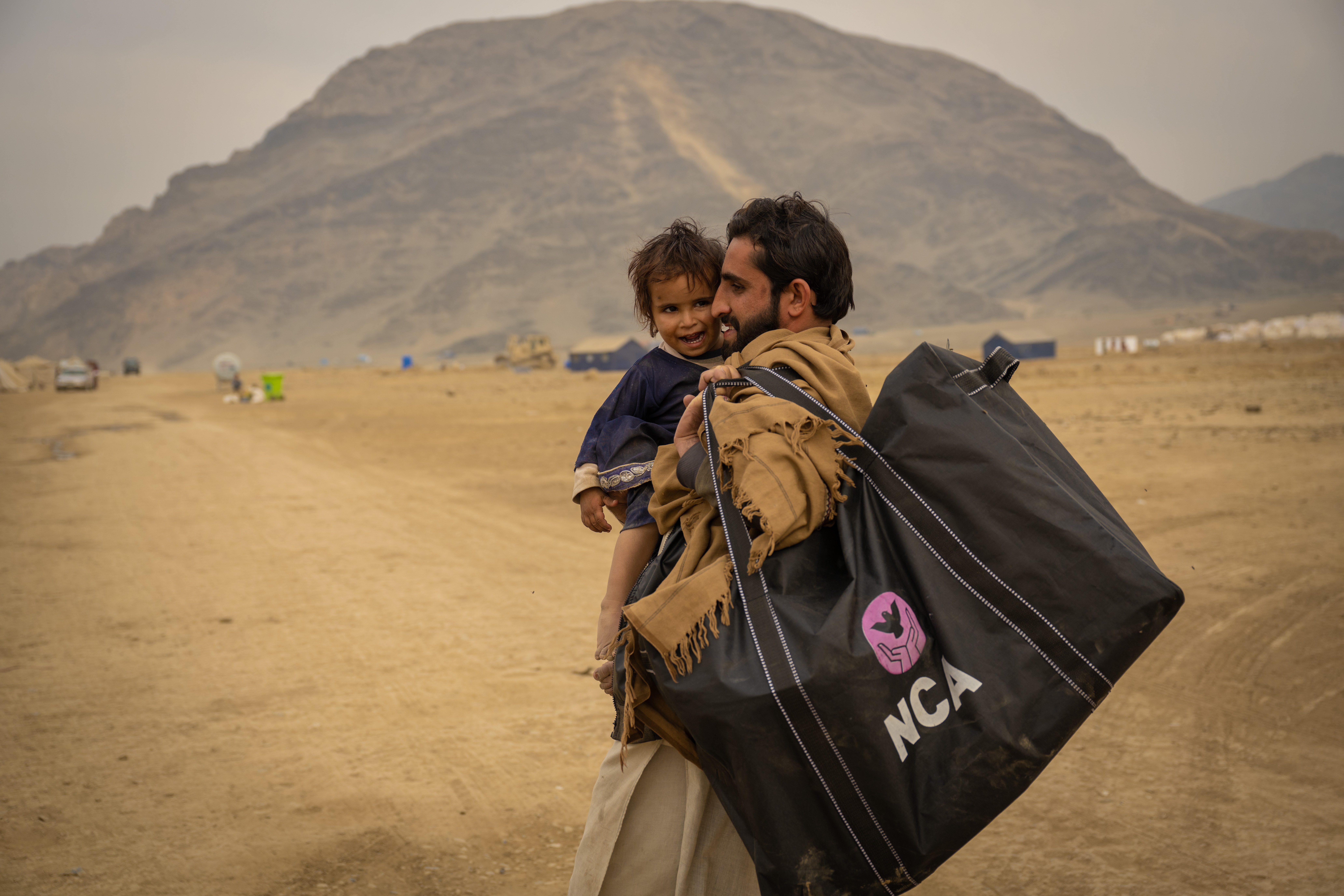Joint Statement by Nordic Church-based Development and Humanitarian Organisations
Nordic countries need to show leadership in the Upcoming Summit of the Future

Photo: Håvard Bjelland/Norwegian Church Aid
We call the Nordic governments to:
- Take a strong, proactive role before, during and after the summit to ensure ambitious and successful outcomes that build pathways to a prosperous and peaceful future for all.
- Demand respect for international humanitarian law in all conflicts and for all parties.
- Renew and intensify global engagement to address forgotten crises like Myanmar and Sudan. Without decisive action, these crises will continue to deepen, perpetuating suffering and instability.
- Respect the existing commitments to official development aid and actively engage to reform the international financial system, ensuring it is based on the needs and initiatives emerging from the Global South
- Recognize, protect and empower civil society engagement and ensure that the contributions of faith communities are acknowledged and integrated.
The Summit of the Future organised by the United Nations in September 2024, comes at a critical moment. With the world facing an increasing number of violent conflicts, pushback on gender equality, and a worrying disregard for human rights, the summit needs to reinvigorate respect for the multilateral system and strengthen its capacities to make progress in reaching the Sustainable Development Goals (SDG) and ultimately deliver to people.
As leading development and humanitarian organisations from the Nordic region, we urge our governments to take a strong, proactive role before, during and after the summit to ensure ambitious and successful outcomes that build pathways to a prosperous and peaceful future. As the minimum requirement, the pact must safe-guard and accelerate implementation of existing UN agreements and commitments. The urgency for nations to unite and find just solutions to our shared critical challenges has perhaps never been greater.
Historically, Nordic countries have been staunch advocates for international law, human rights and sustainable development within the multilateral system with adequate financing to turn ambitions into reality. This leadership has been underpinned by strategic partnerships bridging East and West, and North and South.
However, such opportunities for international cooperation are rapidly deteriorating due to increasing geopolitical tensions, there is a growing lack of trust in global institutions to deliver effective solutions. At the same time, some Nordic governments have risked the integrity of their official development aid by disregarding the purpose of poverty alleviation and undertaken austerity measures on development budgets.
As part of the global ecumenical movement, our organisations bring a unique perspective that encompasses not only faith and religion but also human dignity, justice, and peace. We are connected to other communities of faith and hold important keys in advancing long-term development goals without exacerbating geopolitical tensions.
Solutions to the contemporary crises necessitate equal partnerships with the Global South. We have committed ourselves to efforts promoting a more democratic and representative international system including through reform of the governance of the international financial architecture.
We encourage the Nordic Governments to invest in making sure we deliver on these ambitions and aligning with the new initiatives that emerge from the Global South, such as advancing tax justice under the United Nations. Furthermore, as authoritarian regimes gain more ground in many corners of the world, the specific role of civil society as its counterforce needs to be strengthened.
We also remind that cooperation is built on trust and demands to respect human rights and international law must be applicable to all. Double standards contribute to polarisation and to undermining the rules-based world order that we as Nordics have been investing heavily in promoting and depend on as small open economies.
We welcome that the Nordic countries have steadfastly supported Ukraine against Russian invasion and blatant violation of UN charter and international humanitarian law. Such a rigorous response should also be taken in regard to the escalating situation in the Middle East. Moreover, there has been a lack of attention and response to the needs and human suffering caused by other emergencies, such as ongoing conflicts in Myanmar and Sudan.
Ultimately, in the times of polarisation, conflict and rising inequalities, the Summit of the Future represents an important opportunity to get back on track with the SDGs and reinstate faith in multilateralism. Nordics should not miss this opportunity.
Published:
This content is not available in Norsk bokmål.